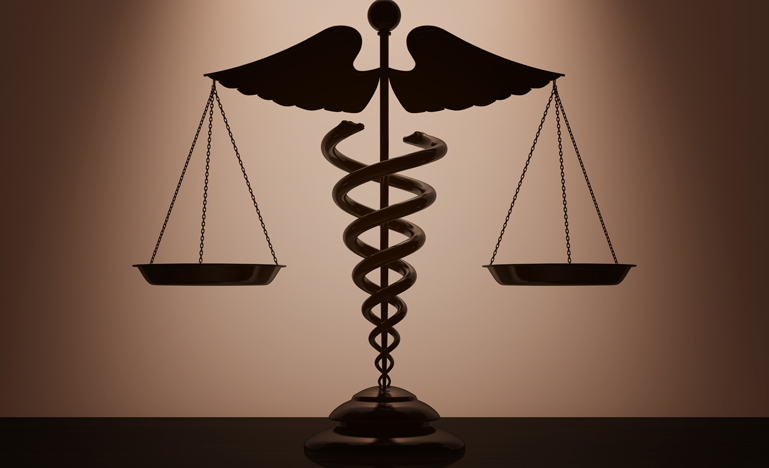Reaching out
Nurturing relationships with non-legal professionals

To paraphrase John Donne and Hillary Clinton, no lawyer is an island, and it often takes a community to serve a client’s needs.
Personal injury lawyers, for example, must work closely with non-legal professionals such as physicians, rehab physiotherapists, and automotive/road engineers. Real estate lawyers need to get along with bankers and brokers in their market sectors. Tax lawyers have to play well with CRA bureaucrats and accountants of all kinds.
Whatever the area of law, legal practitioners need to build working relationships with the best outside professionals they can find. For solo or small firms in particular, having access to a team of reliable, knowledgeable experts is a great way to increase bench strength without hiring more staff.
“The time will come when these experts will have to give evidence, and that evidence can be the difference in winning or losing a trial,” said Daniel Michaelson, a partner in Neinstein Personal Injury Lawyers. This is why creating and nurturing relationships with the most capable non-legal professionals can be crucial to long-term success.
Creating relationships
There are several ways to develop relationships with outside professionals.
Sometimes history lends a hand. For instance, because his personal injury law firm “has been in business over 80 years, we have developed a lot of established contacts with different professionals,” said Stephen Birman, a partner with Thomson, Roger. “But since injuries can happen anywhere – on a baseball diamond or in a grocery store – we are always looking for experts in areas that are relevant to the opinions we’re seeking, and thus open to testing new relationships.”
Other times, it will take research.
When she needs to contact new outside professionals, Lerners LLP partner and insurance lawyer Jennifer Hunter seeks experts with the best credentials.
“For medical professionals, I search the College of Physicians and Surgeons of Ontario,” Hunter said. “I can also find them by specialty using PubMed.” (The PubMed search engine has access to more than 29 million citations from MEDLINE, life science journals, and other biomedical literature.)
The same quality-focused approach works when searching for experts in other professions. Contact regulatory bodies or professional associations, and look for the people who are leaders in their fields. If compensation is required – say for a physician writing a report on a personal injury client’s behalf – pay the bill promptly.
Relationships can pay off
Yan Besner is a partner in Osler, Hoskin & Harcourt LLP. As a real estate specialist, he works with bankers, real estate brokers, property owners, and tenants in the Montreal region.
Besner’s strongest relationships with outside professionals have occurred organically over time, he said. Built upon shared trust, these relationships are mutually beneficial for business reasons, rather than as sources of experts for lawsuits.
“While working with real estate brokerage firms, you do develop relationships with good people,” Besner explained. “If opportunities present themselves on their end for clients who are not represented by counsel, or if I have clients who have a need for space to lease or purchase, there are courtesy referrals in both directions, just because we work well together.”
The mutual referrals cited by Yan Besner are just one benefit for lawyers who work well with other professionals. Others include experts who help win cases for your clients, and who provide their services fast “when you find yourself in a rush,” said Hunter.
Taking care of business relationships
Ongoing human relationships are the key to long-term success. The key is “to be collegial when working with other professionals,” said Besner.
Creating successful teams requires a win-win approach, one where everyone benefits from working together. Trust is a big part of this winning equation: that means lawyers must treat outside professionals with the same respect, candour, and honesty that they demand for themselves.
“You have to be up-front about your expectations, and willing to listen,” said Michaelson. “And you need to know that everyone is saying what they think rather than what they believe you want to hear -- so that there are no surprises when your expert is under oath on the stand.”
Personal connections matter
Because personal connections are the strongest bonds between people, social gatherings like holiday parties, golf tournaments, or other non-work events are an important opportunity for lawyers to bond with the other professionals they work with. When you get invited to an outside professional’s social event, be sure to attend!
As well, lawyers should actively support the causes of the outside professionals they work with. Nothing underlines the sincerity of a relationship more than being there for others; such as sponsoring their team in the annual Terry Fox Run for cancer research.
Small signs of respect also matter. “Before I meet a medical professional, I take the time to read their research first,” said Hunter. “Not only does this make for a natural conversation starter, but it shows that I take them and their work seriously.”
Stephen Birman is an avid tennis player who combines his love of the sport with relationship-building. “I make a point of asking the outside professionals I work with to join me for tennis or other social activities where possible,” he said. “Getting together with them on the court is a great way to create connections beyond work.”
Worth the effort
Lawyers who create and nurture relationships with outside professionals benefit by building better cases for their clients. Better cases translate into better outcomes, and better outcomes mean more business opportunities and a greater chance of financial success.


